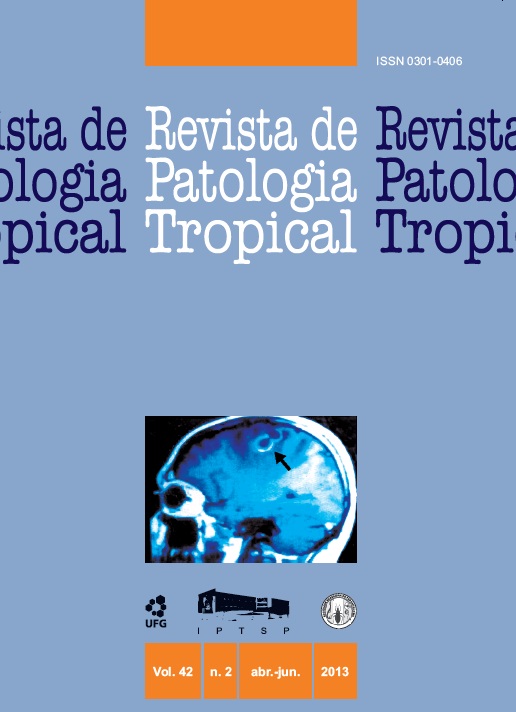Prevalence of anti-Brucella ovis and anti-Brucella abortus in sheep in the city of Colinas, Tocantins, Brazil
DOI:
https://doi.org/10.5216/rpt.v42i2.25525Keywords:
Brucellosis, Epididymitis, Serological tests.Abstract
Brucellosis is an infectious disease caused by bacteria of the genus Brucella, responsible for reproductive disorders in animals, especially ruminants. This study aimed to determine the presence of antibodies against Brucella ovis and Brucella abortus in sheep of 14 registered properties of the Sheep Breeders Association in the city of Colinas, Tocantins, Brazil. Four hundred and fifty serum samples from ovines were collected, analyzed by rapid plate agglutination with acidified buffered antigen and when positive, were analyzed by the technique of slow agglutination in tubes (SAT) and 2-mercaptoethanol (2-ME), to search for smooth strains (Brucella abortus). The search for rough strains (Brucella ovis) was performed with agar gel immunodiffusion (AGID) and the samples that reacted were further tested by the complement fixation test (CFT). From the analyzed samples, 31.6% reacted in the AGID test. Among these, only 2.8% were confirmed positive by CFT. In the sera analyzed by rapid plate agglutination with acidified buffered antigen, 4.4% were positive, among them, 70% were confirmed positive by the 2-ME test. The results obtained in CFT and SAT/2-ME, when analyzed by the Fisher’s exact test and OR, showed statistical significance between positivity and age, showing that there was a greater chance of occurrence of brucellosis in a breeding animal.
Downloads
Downloads
How to Cite
Issue
Section
License
The manuscript submission must be accompanied by a letter signed by all authors stating the full name and email address, confirming that the material has not been published or is under consideration for publication elsewhere, and agreeing to transfer copyright in all media and formats for Journal of Tropical Pathology. The authors will not be paid for published articles. They are solely responsible for the content of those articles, even if the Editor holds the right to adjust them to the norms of the journal.
The reviewers will not be paid for the peer review process.

